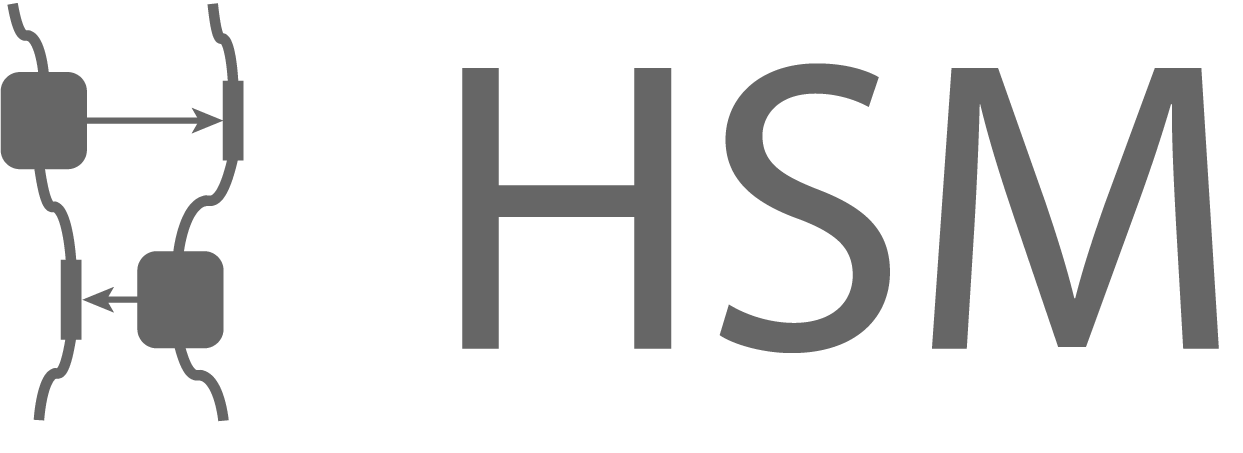hsm - Biophysical prediction of protein-peptide interactions and signaling networks using machine learning.
This repository implements the hierarchical statistical mechanical (HSM) model described in the paper Biophysical prediction of protein-peptide interactions and signaling networks using machine learning.
An associated website is available at proteinpeptide.io. The website is built to facilitate interactions with results from the model including: (1) specific domain-peptide and protein-protein predictions, (2) the resulting networks, and (3) structures colored using the inferred energy functions from the model. Code for the website is available via the parallel repo: aqlaboratory/hsm-web.
This file documents how this package might be used, the location of associated data, and other metadata.
The model was implemented in Python (>= 3.5) primarily using TensorFlow (>= 1.4). Additional package requirements are listed in requirements.txt. To work with this repository, we recommend downloading pre-processed data available at doi: into "data/". Alternatively, it is possible to either re-process raw data (doi:) or include new data. The folder contains two major directories: train/ and predict/. Each directory is accompanied by a README.md file detailing usage.
To train / re-train new models, use the train.py script in train/. To make predictions using a model, use one of two scripts, predict_domains.py and predict_proteins.py, for predicting either domain-peptide interactions or protein-protein interactions. Scripts are designed with a CLI and should be used from the command line:
python [SCRIPT] [OPTIONS]Options for any script may be listed using the -h/--help flag.
Pre-processed / pre-trained data and models may be downloaded from figshare/doi: and should be unpacked at data/ in this directory. This directory may also be used as an example of how to structure input and output files / directories.
An alternative use case would be to train / re-train a new model in the train/ code and make new predictions using the predict/ code.
As reported, domain-peptide and protein-protein interactions are available via figshare/doi:. In addition, we provide pre-processed data for this repository and the website repository,
- Raw training data: figshare/doi:. Raw domain-peptide training data used to train the core HSM models. Unpack to
data/in this directory. - Website data: figshare/doi:. Data supporting the website at proteinpeptide.io
The data used to the train the model is also provided at a separate data repository: figshare/doi:.
Please reference the associated publication:
Cunningham, J.M., Koytiger, G., Sorger, P.K., & AlQuraishi, M. "Biophysical prediction of protein-peptide interactions and signaling networks using machine learning." Nature Methods (2020). doi:. (citation.bib)
See also, a website at proteinpeptide.io for exploring the associated analyses (code: aqlaboratory/hsm-web).
This work was supported by the following sources:
| Funder | Grant number |
|---|---|
| NIH | U54-CA225088 |
| NIH | P50-GM107618 |
| DARPA / DOD | W911NF-14-1-0397 |
This repository is released under an MIT License
